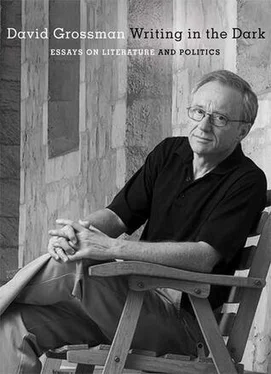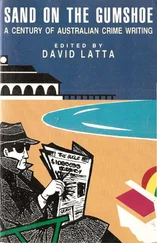(“It is only now so clear to me,” writes one man, in one book— Be My Knife , a novel with which I had a complicated couplehood—“that my life with my wife, our love, is so stable and defined that it is impossible to add a new element that is too large, like myself, for instance.”)
Sometimes I look at a couple that has been together for a long time — there are quite a few whom I know; you may have come across some too — and I perform a little exercise of thought and imagination: I try to see what they were like at the moment they were created as a couple. I try to remove all the layers of time and age and weariness and routine, and then I can see them young and fresh, and so innocent. Sometimes I can also observe how, at the moment of their “pollination” as a couple, they seemed to conduct a silent dialogue, like one subconscious talking to another, in which they promptly agreed on the angles in which they would view each other for the rest of their lives, thus instantly entering a complicated life pact, wondrous in its complexity and subtle mechanisms. They may also have determined that their love would always win, at any cost. Because there is always a price to pay for not seeing the person closest to us from all possible angles, not seeing all his sides and all his shadows. There is a price to pay when we animate in our partner — and when our partner animates in himself — only certain “areas of the soul,” which are defined and agreed upon, and therefore restricted.
A similar process occurs, of course, between parents and children. Sometimes, especially when we are very young, it is not easy for us to see our parents from a broad angle. It may also be uncomfortable for us to accept that our parents are “entitled” to their own internal chaos. That Mom and Dad too have not only souls but also — horror of horrors! — a right to their own “psychology.” And that they too had mothers and fathers, and that those parents, in their day, did things that left wounds and scars and aberrations in our parents.
Perhaps the most difficult thing is to expose ourselves to the darkness we often sense in our children, particularly when they are young and tender. It is difficult to admit to ourselves that even in those delicate, innocent souls there may be a dark chasm, whence threatening desires and urges and foreignness and madness may erupt. As a parent, I can attest that even the thought of this is intolerable, perhaps chiefly because of the guilt it arouses.
We can also find this sort of demarcation between friends, even “best friends” or true soul mates. Even in the deepest, longest, and most loyal friendships, a thin barrier is sometimes detectable — a refusal to know everything, a form of protection, transparent but solid, from that unseen darkness within our best friend.
I recall the tragicomic dialogue between Vladimir and Estragon in Waiting for Godot . “I had a dream,” says Estragon. “Don’t tell me!” Vladimir immediately retorts. “Who am I to tell my private nightmares to if I can’t tell them to you?” Estragon asks. “Let them remain private,” replies Vladimir.
On second thought, perhaps the unwillingness — the fear? — to be exposed to the complexities of people close to us should not be so surprising, for experience teaches us that people are rarely eager to be truly exposed even to what exists within themselves . Perhaps our attempt to avoid being fully exposed to the Other is not so different from the efforts we make — almost inadvertently — to resist being tempted by all the varied “others” within each of us. To keep from crumbling into all the options of existence and the internal temptations, all the forking paths within us. Who can measure the vast efforts we make to maintain these rigid internal frameworks, to preserve the bands that grasp — and sometimes shackle — our many-faceted, oft-deceptive souls?
I will add that I often feel that writing has shown me the enormous effort I continually make, often unconsciously, to resist falling apart into all the possibilities, all the many characters and entities, all the qualities and urges and instincts that act within me, well suppressed yet still pulling me constantly in all directions.
We human beings are uneasy about what truly occurs deep inside the Other, even if that Other is someone we love. And perhaps it is more than unease; perhaps it is an actual fear of the mysterious, nonverbal, unprocessed core, that which cannot be subjected to any social taming, to any refinement, politeness, or tact; that which is instinctive, wild, and chaotic, not at all politically correct. It is dreamlike and nightmarish, radical and exposed, sexual and unbridled, at least according to the social-order definitions that prevail among “civilized” people (whatever that term may mean). It is mad and sometimes cruel, often animalistic, for good or for bad. It is, if you will, the magma, the primordial, blazing material that bubbles inside every person simply because he is human, simply because he is an intersection of so many forces, instincts, longings, and urges. It is a magma that usually, among sane people — even the most tempestuous — hardens and cools when it comes into contact with air, when it encounters other human beings, or the confines of reality, and then it becomes part of “normative” social fiber.
To me, writing, the writing of literature, is partly an act of protest and defiance, and even rebellion , against this fear — against the temptation to entrench myself, to set up an almost imperceptible barrier, one that is friendly and courteous but very effective, between myself and others, and ultimately between me and myself.
I wish to clarify again that the primary urge that motivates and engenders writing, in my view, is the writer’s desire to invent and tell a story, and to know himself . But the more I write, the more I feel the force of the other urge, which collaborates with and completes the first one: the desire to know the Other from within him . To feel what it means to be another person. To be able to touch, if only for a moment, the blaze that burns within another human being.
This may be something we cannot achieve by any other means. We tend to think that when we merge completely with another person, in moments of love and sexual contact, we know that person in an incomparable way. In biblical Hebrew the sexual act is even connoted with the verb “to know”: “And the man knew Eve his wife,” says Genesis. But at the highest moments of love, if we are not completely focused, on ourselves or on a pointed projection of our heart’s desires onto our partner, we are usually directed mainly toward what is good, beautiful, attractive, and sweet in him. Not to all his complexities, all his different tones and shades — in short, not to everything that makes him “an Other” in the deepest and fullest sense of the word. But when we write about the Other, about any Other, we aspire to reach the knowledge that encompasses the unloved parts in him as well, the parts that deter and threaten. The places where his soul is shattered and his consciousness crumbles. The bubbling cauldron of extremism and sexuality and animalism that I mentioned previously. The fount of magma, before it has hardened, and long before it has turned into words.
Even if, almost inevitably, we “project” our soul onto the Other we are writing about, and even if we often “use” the Other to tell stories about ourselves and to understand ourselves, still the wish that I am speaking of, in its purest essence, aspires precisely in the opposite direction: to boldly cast off the shackles of my “I” and reach the core of the Other, as an Other, and to then experience the Other as one who exists to himself and for himself , as a whole world with its own validity and internal logic. It is then that we are able to catch a glimpse of — and even linger in — the place that is usually so difficult and rare to know in another. The place where we are exposed to the Other’s “core,” where dreams and nightmares, hallucinations, terrors, and yearnings are created — all the things that make us human.
Читать дальше












